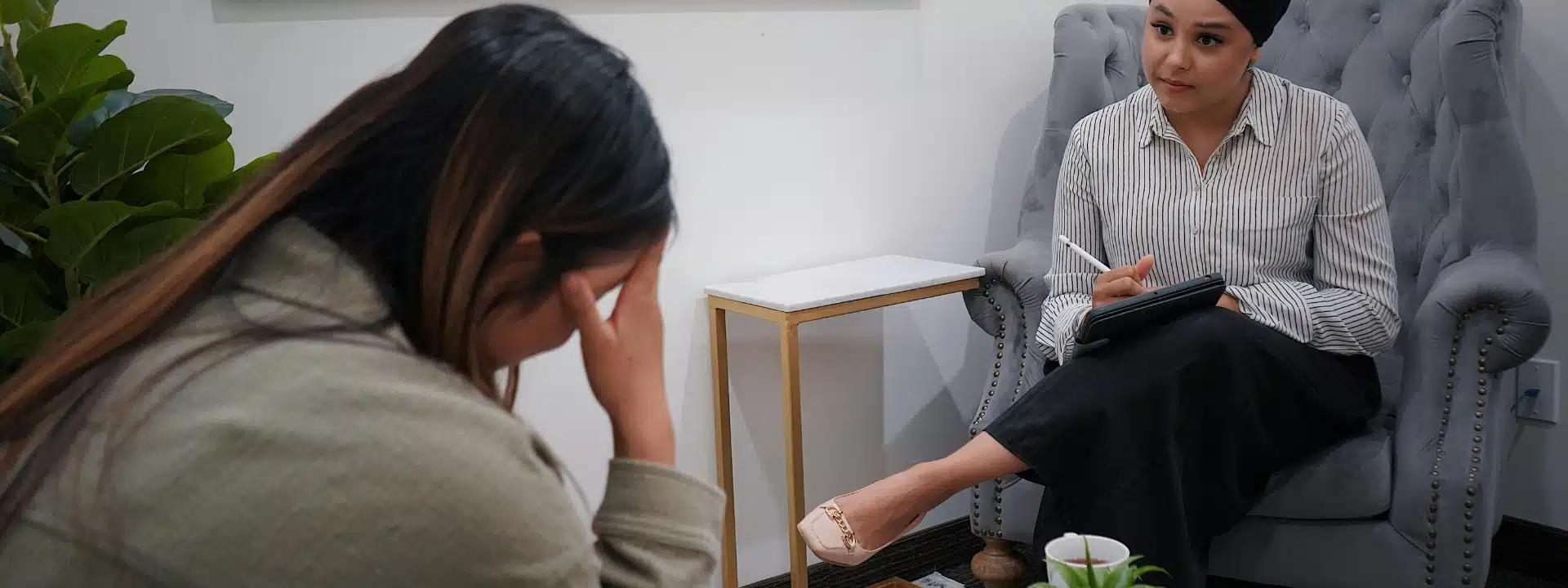The office smelled like lemon cleaner and copier ink. Claire sat in the third-floor meeting room. The air conditioner hummed loudly in her head. She watched the clock and counted each second. Then someone asked her a question without warning. Her mind froze. She mumbled, “Let’s circle back.” People laughed lightly, not unkindly—but her face burned. At home, her jaw hurt from clenching.
Claire was 28. She worked hard and looked “fine.” She ran meetings well, answered emails fast, and kept her apartment neat. But staying in control cost her energy, which she didn’t talk about.
After work, she fell into bed. Noises, bright lights, and the silent rules of small talk left her worn out. Grocery store crowds made her dizzy. Some sweaters felt like sandpaper. She kept earbuds with her to block bus brakes and chatter.
For years, she called these things “quirks.” Then her friend asked, “Do you think you might be autistic?”
She asked her therapist, hoping for a yes or no. The answer came: “I can’t give you that diagnosis—but I can help you find the next step.”
How to Know if a Therapist Can Diagnose Autism
(Based on clinical practice guidelines emphasizing multidisciplinary evaluation)
Claire sat in her therapist’s warm office. Chamomile tea scented the air. She asked, “Do you think I could be autistic?”
Her therapist leaned forward. “I can look for signs,” she said. “I can help you talk about your experiences. But an official diagnosis needs a specialist.”
Alka A. Subramanyam and her colleagues explain that autism diagnosis works best with a multidisciplinary team. This team often has a psychiatrist, psychologist, or neurologist. They use trusted tools like the Autism Diagnostic Observation Schedule (ADOS-2) and a full developmental history.
Claire felt disappointed. But she saw the truth—her therapist’s job was to guide her, not judge her.
How to Get an Autism Diagnosis as an Adult
(Reflecting recent models of adult pathways)
A week later, Claire got her first step—a digital screening form. She sat at her kitchen table while rain tapped the window. She remembered being a child who avoided recess games, sorted books by color, and loved learning facts.
An adult autism diagnosis often takes many steps. A 2025 study by Marios Adamou and team says it starts with screening, then interviews, family reports, and observed behavior. This process makes sure results are right, since autism traits can look like ADHD, anxiety, or trauma.
Claire saw that the forms were more than questions—they told her life story to experts trained to listen.
How to Navigate Adult Autism Diagnostic Pathways
(Based on adult-specific diagnostic considerations)
The clinic accepted Claire’s referral. The wait time? Six months. It felt endless.
Isabelle Dufour and her team found that long waits are common. Many adults hide their traits after years of trying to fit in. This “masking” makes diagnosis harder (Dufour et al., 2025). Experts need to gather deep history and check for other conditions.
Claire used the wait to learn. She joined online groups for late-diagnosed adults. Many said the diagnosis brought relief, answers, and sometimes grief. She recognized herself in their stories and felt more sure she was on the right road.
How to Prepare for Adult Autism Assessment
(Drawing on lived experiences and supports)
Claire’s therapist gave her a task: keep a “sensory diary.” Every day, she wrote about when sounds felt too loud, lights too bright, or clothes too rough. She listed the social scripts she had learned, the tiredness after big events, and her deep focus on special interests.
A 2023 study by Parisa Ghanouni and Liam Seaker found that adults who collect real examples from their daily life—and get input from friends or family—or more accurate and helpful assessments.
Claire also called her parents. They remembered her lining up dolls, hiding from loud parties, and melting down when plans changed. These stories would help the specialists see the whole picture.
Why Therapist vs. Specialist Matters
(Clarifying roles and expectations)
When assessment day came, Claire felt ready. Her therapist had been her steady guide.
The American Psychological Association says therapists can see patterns and give support. But only psychologists, psychiatrists, or neurologists can provide an official diagnosis.
Claire understood now: her therapist was her navigator. Without her, the process might have felt like a maze.
Why Time to Recognize Autism Isn’t a Failure
(Using evolving diagnostic insight)
When the final report came—Autism Spectrum Disorder, Level 1—Claire felt a deep click of recognition. She thought of all the times she called herself “too sensitive” or “too much.”
A 2023 review by Eleanor Curnow and team says late diagnosis is not a personal failure. It shows how medical knowledge is growing. Many adults didn’t fit the old criteria, so doctors missed them.
Claire chose to focus on what the diagnosis gave her: self-understanding, a supportive community, and the freedom to live in a way that fit her.
From Uncertainty to Understanding—& Why the Right Help Matters
Claire’s story answers the question, “Can a therapist diagnose autism?” The short answer—no, not officially. But therapists can still help you find the right experts and prepare for the process.
Key points:
- Most therapists can’t give an official diagnosis, but they can screen and refer.
- Adult diagnosis needs a team, structured tools, and a full history.
- Preparing ahead makes the process smoother.
- Late diagnosis means awareness is growing, not that you failed.
At Alter Behavioral Health, our doctors, clinicians, therapists, and treatment experts work as a team. We give accurate, compassionate assessments and ongoing support. We don’t stop at a label—we help you plan your next steps and live well.
If you’ve wondered about autism for yourself or someone close to you, don’t wait. Call Alter Behavioral Health now. Replace uncertainty with clarity and start building a life that fits.
FAQs
Q1: Can a therapist officially diagnose autism?
No. Therapists can look for traits and refer you, but specialists make the diagnosis.
Q2: Who can diagnose autism in adults?
Psychologists, psychiatrists, and neurologists—often as part of a team.
Q3: How long does an adult autism assessment take?
It can be a few hours or several sessions over weeks.
Q4: What tools do experts use to diagnose autism?
ADOS-2, ADI-R, interviews, and DSM-5 or ICD-11 criteria.
Q5: Can online tests diagnose autism?
No. They can suggest traits but not replace a professional.
Q6: Why is autism in adults often missed?
Traits can look like ADHD, anxiety, depression, or trauma.
Q7: Can a diagnosis help at work?
Yes. It can support requests for reasonable accommodations.
Q8: How can I prepare for an assessment?
Write down your symptoms, sensory issues, and ask your family about your childhood.
Q9: Is late diagnosis still worth it?
Yes. It can bring understanding, support, and resources at any age.
Q10: What happens after diagnosis?
You might get therapy, skills training, workplace help, and autism-friendly resources.



